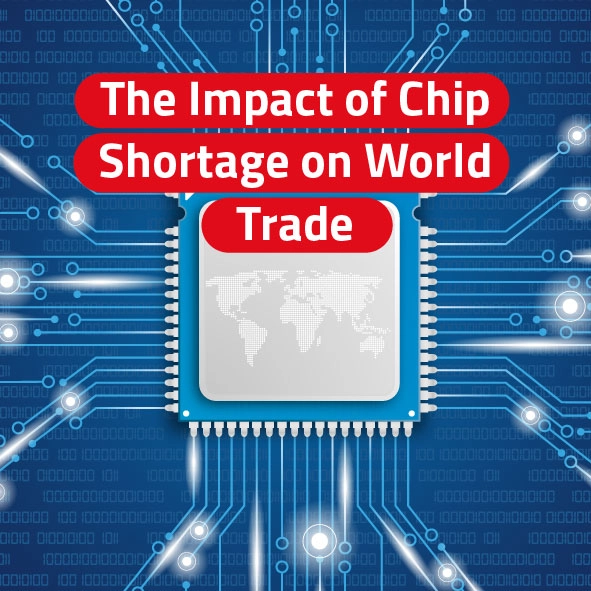Chips,
which are used in many fields such as the defense industry, electronic systems,
automobiles, home appliances, wearable technologies, smart phones, and
computers and are one of the indispensable parts of electronic devices, are
also called semiconductors.
The
electronic circuits of the chips, which are based on very complex and demanding
processes, are positioned on a thin silicon surface. The transistors placed on
the chip act as miniature electrical circuits. The more transistors fit into the
chips, the faster and more powerful the chip will be. The device that enables
these processes to be performed on chips that are 200 times smaller than a
blood cell are photolithography machines that can print trillions of
transistors per hour on silicon plates. Before entering the machine, each plate
is covered with a photosensitive liquid layer. The machine, which works by
sending a laser beam on the transistor design and the silicon layer, leaves the
image of the transistor on the plate.
Purposes
of Chips
Chips
are used for two main purposes. Logic chips, which we can describe as
the brain of electronic devices, can process information in order to complete
the defined tasks. CPUs (Central Processing Units), which are the first
developed versions of logic chips, are also called "original chips".
In addition, GPU (Graphic Processing Chips) and NPUs (Neural Processing Chips)
are also logic chips. Chips used for information storage are called memory
chips. There are two types, DRAM (Dynamic Random Access Memory), which is
used to run programs, and NAND Flash, which is used to store photos or other
data.
Chip
Shortage
Due
to the quarantines that entered our lives with the Covid-19 pandemic, people
had to stay at home. The use of computers, smart phones, tablets and game
consoles increased as education and business life started to be carried out
from home. In addition to this increase in demand for electronic devices, the
increase in infrastructure investments of telecommunication companies caused an
intense increase in chip demand.
Due
to the decrease in demand in the automotive industry due to the epidemic,
automobile manufacturers canceled a significant part of their chip orders. Due
to the increase in demand in the consumer electronics sector at this time, chip
suppliers also turned their attention to these sectors.
In
time, the demand for the automotive industry started to increase again as the
epidemic started to lose its power and people started to leave their homes.
While this increasing demand was directly reflected in the chip demands,
manufacturers in the automotive industry could not replace the chip orders they
canceled.
While
chip manufacturers were trying to meet the demand of the consumer electronics
industry, they had to line up their customers in the automotive industry trying
to come back to life. Although the chip manufacturers continued production by
increasing their capacities, they could not fully meet the demands.
The
fact that the chip supply could not meet the demands deeply affected many
sectors such as defense, automotive and communication. This crisis caused the
production plans to be interrupted or even stopped in many sectors. For
example, world giant Apple had to postpone the launch of its new generation
Iphone 12 model phone for two months due to the chip crisis. In automobile
production, on the other hand, leaning towards simpler designs such as vehicles
without navigation and multimedia has begun.
According
to some studies, this chip crisis, which is thought to not end before 2023,
seems to continue to affect the economy quite badly. In Turkey, under the
leadership of the Ministry of Industry and Technology, ASELSAN and TUBITAK
started to work on domestic chip production.
It is very easy to reach importers and exporters all over the world directly with TradeAtlas! TradeAtlas is a global importer and exporter search engine that contains 1.5 billion bills of lading and shipment details data of 17.5 million importer companies in more than 230 countries around the world. TradeAtlas is with you to accompany you in taking steps towards becoming a more important part of global trade! To become part of the global ecosystem, you can register and search for free by clicking here.















































